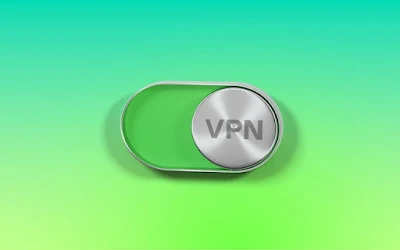5 Things a VPN Can't Hide From You and 5 More Things It Can

VPNs are the best tools to protect your privacy when browsing the internet. However, VPNs don’t hide everything. Knowing that, in this post, we will not only tell you the five things that a VPN can’t hide, but also what it can hide.
- The 5 Things a VPN Can't Hide
Before we get started, if you’re considering using a VPN, it would be a good idea to know the worst countries to use it in. Without further ado, the five things a VPN can’t hide are as follows:
- Your account activities, because the providers of these services will always have your information at their fingertips.
One thing that a VPN cannot hide is the activities that are taking place using your account on some online services. Companies that own such services can easily monitor your activity even if you are using a VPN.
Activities performed using your Gmail or Outlook email, as well as your Facebook, Twitter or Instagram account, will always be accessible to the companies that own these services.
- Information about your payment methods, information that only you can control
Another thing you can’t hide with a VPN is your financial information. Even if you use a VPN when making an online purchase, the company or person you give your banking information to, your credit card, your PayPal account or any other payment processor will have that information in their hands right away.
If it turns out that you gave this information to an unscrupulous person, you may lose money or become a victim of some kind of fraud. So make your online purchases on trusted sites and choose a safe payment method.
- Viruses and malware, because VPN is not like antivirus software
A VPN also cannot protect your mobile phone, tablet or computer from viruses, spyware or malware that you end up downloading. To avoid falling victim to this, you should have an up-to-date antivirus and be very careful with the sites you browse, as well as what you download from them.
- Your MAC address, something a VPN cannot hide or change
In case you didn't know, a MAC (Media Access Control) address is an identification number assigned to the network card of any tablet, mobile phone or computer since its manufacture. This number is unique to each network card or device and a VPN has no ability to modify or hide it.
- The amount of data you use when browsing the Internet
Finally, the amount of data you use while browsing the internet. Your ISP will still be able to see how much data you are using. Also, VPNs increase the amount of megabytes you consume when connected to the internet.
-What a VPN can hide
Now that you know what a VPN can't hide, it's time to tell you what you can hide with this tool:
- Your IP address, something every VPN can hide
The most important thing to hide if you want more privacy when browsing the internet is your IP address. Through your IP address companies, governments and cybercriminals can easily get your location, know your identity, as well as your browsing history.
What a VPN does with your IP address is hide it and redirect your connection to one of its servers and encrypt any connection made by any software or application to the internet from your tablet, computer or smartphone. This way, no individual, company or government will be able to know your IP address.
- Your geographical location, something that can be changed using a VPN.
Your IP address is tied to where you are connecting from and without VPN companies or unscrupulous people can see where you are connecting from. VPNs solve this problem by connecting to their server so if they try to track you, it will look like you are connecting from another part of the world.
- Your personal information
When you browse the web, your personally identifiable information could be viewed by hackers, a government agency, or your Internet service provider. This information includes your name, email address, address of where you live, and phone number.
A VPN solves this problem by encrypting all data on your internet connection making it difficult for any person or organization to know your personal information.
- Your activity when downloading torrent files
Torrent links are a great way to download large files, but they come with a number of risks, such as the possibility of downloading viruses. Also, some ISPs don’t like their customers downloading torrent files and may slow down your internet speed or even block it.
The reason they do this is because torrenting is widely used to download and share paid copyrighted content. A VPN fixes this problem by encrypting your internet connection and preventing your ISP from seeing everything you download.
- Your activity when browsing the Internet
If you browse the internet without using a VPN, your ISP can easily see a log of the web portals you’ve visited. VPN encryption makes it difficult for anyone to know what websites you’re visiting.
- This topic may also interest you: What is the best country to recommend that you connect to its VPN?

